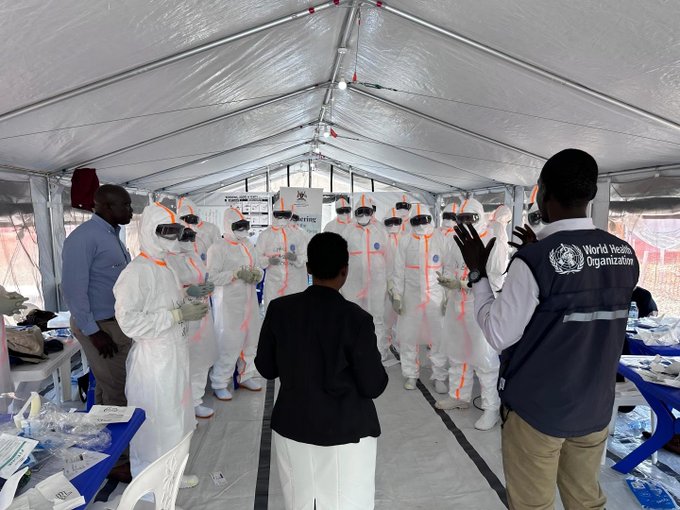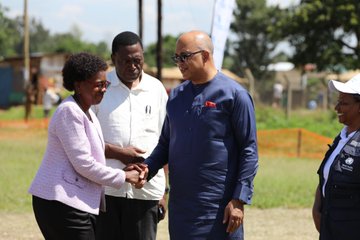Uganda has today announced the official end of the Ebola Sudan Virus Disease outbreak, marking a significant victory for the nation and its health partners. The declaration comes less than three months after the initial confirmation of the virus in late January.
The swift and coordinated response by the Ugandan government, with crucial support from the World Health Organisation (WHO) and various partners, has been lauded as instrumental in containing the outbreak.
According to the Ministry of Health, the outbreak saw a total of 14 cases, including 12 confirmed and two probable. Tragically, four deaths were recorded, two confirmed and two probable. However, the determined efforts of healthcare workers and the resilience of the affected communities led to the recovery of ten individuals. Rigorous contact tracing identified 534 people who were closely monitored to prevent further spread.
The discharge of the last confirmed Ebola patient on March 15, 2025, triggered a 42-day countdown, as per WHO guidelines, before the outbreak could be officially declared over.
This recent outbreak marked Uganda’s second encounter with Ebola in less than three years, highlighting the country’s prior experience in managing such public health emergencies. Upon confirmation of the outbreak on January 30, 2025, the Ministry of Health swiftly activated national coordination mechanisms, deployed rapid response teams, strengthened surveillance systems, and established dedicated treatment units. Crucially, border health measures, particularly in Kampala and at key entry points, were reinforced to mitigate the risk of cross-border transmission.
The WHO played a pivotal role in supporting Uganda’s response, mobilising over 130 national and international experts who provided crucial assistance in case investigation, contact tracing, laboratory diagnostics, and clinical management.

The organisation also facilitated the testing of over 1500 samples, ensuring biosafety through logistics, training, and quality assurance. Furthermore, the deployment of Emergency Medical Teams and anthropologists proved vital in reducing stigma, building trust within communities, and fostering essential behavioural changes.
Dr. Chikwe Ihekweazu, Acting WHO Regional Director for Africa, commended Uganda’s leadership, stating, “This outbreak challenged us in new ways. It touched both urban and rural communities across the country and unfolded against the backdrop of significant global funding constraints. The response demonstrated Uganda’s long-standing leadership in tackling public health emergencies. As WHO, we are extremely proud to have supported these efforts every step of the way.”
The contained Ebola strain was identified as the Sudan virus disease (SVD) subtype, a particularly virulent form of the disease with a historically high fatality rate. Despite the lack of licensed countermeasures for this specific strain, Uganda, with the support of WHO, rapidly initiated a randomised clinical trial for vaccine safety and efficacy using the ring vaccination approach. Additionally, the Monitored Emergency Use of Unregistered and Experimental Interventions (MEURI) protocol facilitated the administration of Remdesivir treatment.
Dr. Kasonde Mwinga, WHO Representative in Uganda, emphasised the collaborative spirit, saying, “Uganda’s leadership and resilience were crucial in containing this outbreak. From day one, WHO worked hand-in-hand with the Ministry of Health, deploying expertise, providing essential supplies, and ensuring every suspected case was investigated. The people of Uganda have shown extraordinary resolve.”
While the outbreak is officially over, the Ministry of Health, with ongoing support from WHO and partners including UKaid, the Irish Embassy in Uganda, the Netherlands Embassy in Uganda, the European Commission’s Health Emergency Preparedness and Response Authority (HERA), the International Development Research Centre (IDRC), EU Civil Protection and Humanitarian Aid (ECHO), and the Africa Public Health Foundation, will maintain heightened surveillance, provide care for survivors, and continue to invest in preparedness measures to safeguard the health of Ugandan communities.
Credit: WHO Uganda









